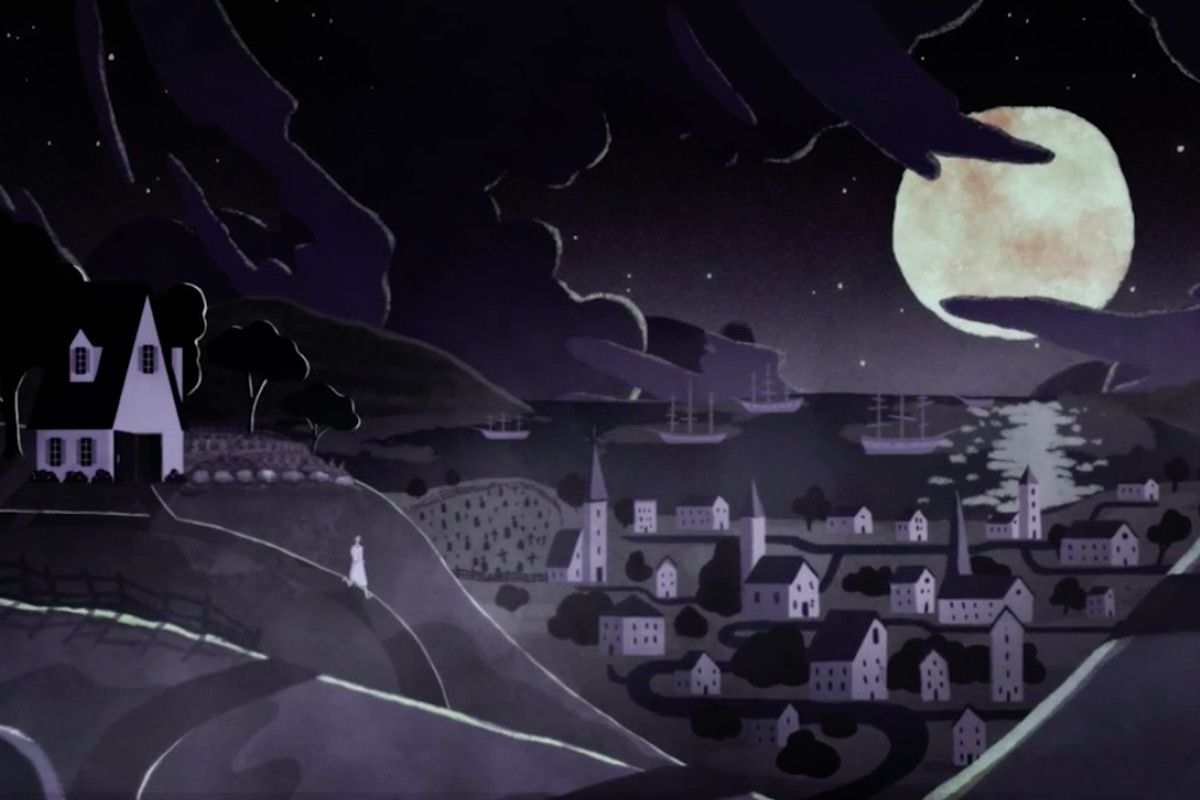Since its emergence, the so-called (sub)genre category of true crime has enjoyed enormous popularity. It is no coincidence, after all, that the fact that a story is not authored can really influence the judgment of a work of art. It is not elegant to accuse creators of being effect-oriented, because – they can argue in defense – that they are not inventing the story, they are just telling it honestly. It’s true, most of the time it’s terrifying just to think that the atrocities shown on screen all happened.

The Lore (Superstitions) series began as a podcast show in 2015. Its creator, Aaron Manke, subtly realized that the majority of the audience was truly hungry for stories about beliefs and superstitions, and in today’s world — a world heavily influenced by science and technology — the appeal of folklore is perhaps greater than ever. Why do I mention myths and true crime on the same page? Because Aaron Mahnke mixes the two concepts as well.
The first season of Lore was released in 2017, and the second a year later in 2018. Thus, the series has been available to watch in its entirety on Amazon Prime for years, yet very few people remember it (at least here). It’s worth talking about, it’s worth our attention. but! Then here’s the big thing, because there is a huge difference between the two seasons of the series – far in favor of the first. It’s no coincidence that Mahnke didn’t last, and it’s no coincidence that only a few people wrote about it, because we then turn off the TV in rather poor taste. It is completely incomprehensible to me why Mahnke thought it was a good idea to change the original concept. I’ll explain what it’s all about. In the first season, we can learn about six different myths, and the themes are as follows:
• Tuberculosis
• Lobotomy
• Change shape
• evil soul
• Werewolves
• Puppets
Here many people may hiss, because, unfortunately, neither tuberculosis nor lobotomy are myths, but – and this is another big thing but, although not as big as the previous one – the series tells about these real events, which also remind many Beliefs. Which happens to be related to tuberculosis or lobotomy. In fact, the first season of Lore is based on the interesting concept that lore and folklore have not been separated for a long time. Scientists have often had to wage a Sisyphean struggle against people who hold different beliefs, and then we don’t even talk about the fact that there was a time when science itself was only in its infancy, so what was thought to be scientific at some point in time (For example, a lobotomy) was later shown to not be consistent with scientific methodology (and I was putting it very precisely at the time). As we can see, the first season of Lore takes its themes from the world of folklore, which means it’s relatively easy to remain interesting throughout. But the creators are not satisfied with just telling us the lesson in a dry documentary style. Mahnke and his staff also offer striking stylistic features, which, in addition to the exciting themes, form an additional part of the concept.






